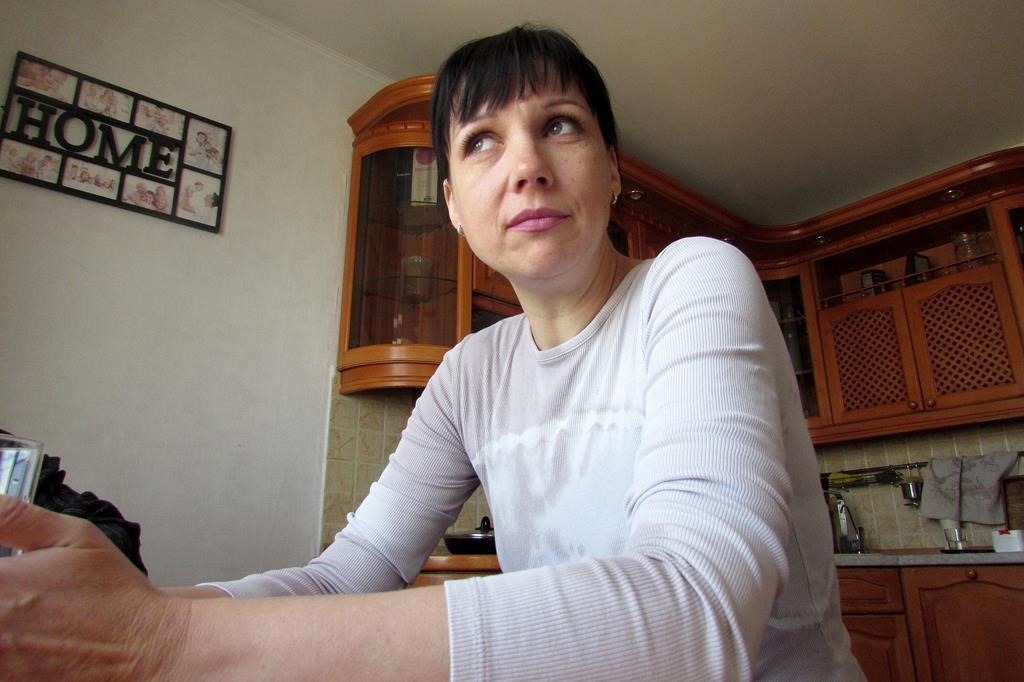Canada
Two years in, Ukraine-Russia conflict brings hard choices, fractured families

For Ukrainians in country and as far away as Canada, Saturday’s grim second anniversary of the Russian invasion means reflection on lives lost, families shattered, hard choices made, and even harder choices to come.
In Edmonton, Archpriest Cornell Zubritsky, sees it every week among parishioners at Ukrainian Orthodox Cathedral of St. John the Baptist.
He says early hopes for victory and peace when the Russians invaded Feb. 24, 2022, have been overtaken by pessimism and gloom, exacerbated by congressional infighting and politicking in the United States that have raised questions over its continued support for the war-torn nation.
“The anger, the grieving, the lack of optimism is pretty prevalent,” Zubritsky said.
“In the beginning, (the congregants) were saying, ‘In a couple of months, we’ll probably be going home.’
“I think it’s starting to sink in that they may be here to stay. They can’t go home.”
In Victoria, Max and Viktoriia Shkurupli might go home.
Or they might not.
And if they do go home, they worry about what they will find.
The couple were assuming control of a family-owned travel agency in Ukraine when the war began.
“We had to search for a safer place for our kids, and that’s when the decision was made,” said Max Shkurupli.
“It’s not psychologically safe. It’s not physically safe for the kids to stay in the country. That’s why my family left almost immediately.”
They eventually reached out to Victoria travel agent Cathy Scott, who hired them and brought them to Canada, leveraging their fluency in multiple languages to boost business.
Viktoriia Shkurupli went home for a visit to see her brother but said it was a strange feeling: leaving home to come home.
“When I came back and came out of the airport, it just felt like my second home (was Canada),” she said.
Max Shkurupli said he has concerns about returning to Ukraine.
“I believe that Ukraine will prevail,” he said.
“But unfortunately it will still not be a safe environment for kids. It will still not be a safe environment for adults as well, because there will be such a big amount of weapons circulating in society.
“Maybe I will be wrong, and maybe things will be much better.”
In Calgary, Anastasiia Stepanchuk, said she may go home if duty calls.
Originally from Rivne in western Ukraine, Stepanchuk has been in Alberta since 2018, researching dementia and Alzheimer’s at the University of Calgary.
She said she would go back to Ukraine if needed to help rebuild.
“I’m not saying Calgary is my home forever or Canada is my home forever. If I will be most needed back home, I would be happy to go back and do the best that I can,” she said.
Back in Ukraine, residents like Olyna Mischenko continue to deal not only with razed homes but with severed relationships, as age-old loyalties have become mixed with war propaganda.
Relatives say Mischenko remains alive and well in Kyiv, surviving the conflict that has destroyed her home and estranged her from her husband and sister.
In an interview six months ago with The Canadian Press in her Kyiv apartment, Mischenko, held up a small piece of blue paper with her name and address.
It’s a faded identity card from her time in Mariupol, south of Kyiv, that kept her safe. It had to be carried at all times and produced on demand from Russian troops after they entered the city and reduced it to rubble.
Mischenko’s family huddled underground with hundreds of others in train tunnels. Food, water, and heating fuel were scarce. Mischenko said she had to strip so Russian troops could check for pro-Ukrainian tattoos.
Eventually, she said, many residents began supporting the Russians, causing kin to turn against kin.
“My family was broken. I was breaking up with my husband because there were some troubles with him supporting Russia,” she said through an interpreter.
“I stopped talking with my sister because she’s pro-Russian like my husband. My sister says there is no Ukraine in Mariupol no more.”
Rob Huebert, an expert on international relations and security at the University of Calgary, said the war is particularly bitter because the combatants have so much in common — religion, culture, and a similar language.
He said the war is not really two years old but an extension of the conflict that began in 2014 when Russia annexed Crimea.
It’s unlikely Ukraine will submit, he said.
“When you look at the history of the fighting that occurred there during the Second World War, and you can even go to the First World War, the tradition of fighting there is you fight until your enemy is dead,” he said.
Back in Edmonton, Zubritsky says the propaganda is playing out in real-time in the pews of his church over the conflict and its roots in Holodomor — the Soviet-led famine that killed millions of Ukrainians in the early 1930s.
Ukrainians who died or were displaced in that genocide saw many of their homes taken over by ethnic Russians who, almost a century later, see the modern conflict through a different lens.
“I have a lady in my parish who stopped calling her son because he lives in eastern Ukraine,” said Zubritsky.
“At the beginning of the war, she would call. And of course, he only had access to Russian television at that point, and basically, the propaganda machine worked.
“He said, ‘Mum, what are you talking about? This is not an invasion. This is a rescue mission.’’’
